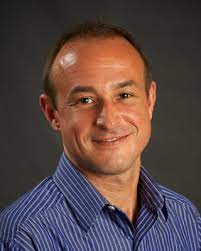Scientific Program

Michael Dean Kaltenbach
University of Pennsylvania, USA
Biography:
Michael Kaltenbach is a part-time lecturer at Rutgers University School of Social Work, teaching a course in Human Behavior in the Social Environment. He has previously taught BSW and MSW level courses in crisis intervention and brief therapy, clinical practice, intro. to social welfare / human services, communication in social work practice, human behavior and the social environment, and emotional disorders in childhood and adolescents at Temple University and the University of Southern California. Kaltenbach has been working in the field of psychology and social work for the past twenty-three years, and eighteen of those years have been since he received his master’s degree in Social Work. His doctoral dissertation research interest focused on how sexual behaviors have changed due to the usage of PrEP, as a HIV preventive method. His research data as interpreted through the theoretical / conceptual perspectives of cognitive-behavioral theory and relational-cultural therapy. Kaltenbach is a Licensed Clinical Social Worker in California, New York, and Pennsylvania, and has many years of experience providing psychotherapy, case management, and other social services in a variety of settings: hospitals, HIV outpatient clinics, schools, foster care agencies, group homes, etc. He has experience providing Clinical Supervision as well as Field Instruction to MSW level Social Workers and Interns from USC and UCLA. He formerly served as a Co-Facilitator for the LA County HIV Mental Health Task Force and has provided lectures on various mental health topics. Previously, he was a Teacher’s Assistant (T.A.) for a professor at the University of Pennsylvania School of Social Policy & Practice’s MSW level course on Post-colonial Social Work Practice: International Social Welfare in Kolkata, India. He enjoys traveling and learning about various cultures. After he obtained his bachelor’s degree he served as an US Peace Corps Volunteer in Senegal, West Africa. When Kaltenbach is not teaching, he currently provides psychotherapy in his private practice office located in Philadelphia, PA. He also provides psychotherapy on a fee-for-service basis at outpatient community counseling centers in West and South Philadelphia, and at a Senior Assisted Living Facilities in Bay Ridge, Brooklyn, NYC and Manhattan, NYC.
Abstract
According to the Joint United Nations Programme on HIV/AIDS (UNAIDS) and the World Health Organization (WHO), approximately 33.4 million individuals throughout the world have been affected by HIV/AIDS in the last 30 years or so (Bonacquisti & Geller, 2013). The medication, Truvada, otherwise known as PrEP has been introduced to serve as a harm reduction technique to combat the spread of HIV infection. PrEP is an antiretroviral drug that lowers the risk of HIV exposure. This is a qualitative study examining the sexual behaviors of gay and bisexual men prescribed PrEP as a preventive method for the transmission of HIV. I conducted 30 semi-structured in-depth interviews of people who had been prescribed PrEP for at least 30 days in three cities: Los Angeles, Philadelphia, and New York City. The results indicate that contextual factors shaped the sexual behaviors of participants on PrEP, leading them to lower risk at times, and elevate it at others. PrEP caused individuals to experience changes within their communication patterns with their medical providers and their sexual partners. The results shed light on the way people on PrEP engage in sexual and health-seeking behaviors and help to develop a blueprint for the way service providers engage with this community.
- Critical Care and COVID-19
- Emergency Medicine
- Critical Care Nursing
- Critical Care Medicine
- Neuro Critical Care
- Emergency Nursing
- Emergency Drugs and Its Administration
- Pediatric Emergency Medicine
- Emergency Medical Services Market
- Clinical Challenges

